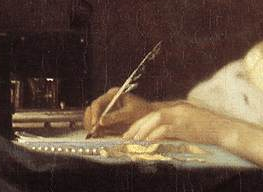Exempla and lineage : motives for Crusading, 900-1150
Robert H. Bouskill
Bouskill, Robert H., Exempla and lineage : motives for Crusading, 900-1150, Master of Arts, McGill university, 1996 (en ligne : http://digitool.Library.McGill.CA:80/R/-?func=dbin-jump-full&object_id=23710¤t_base=GEN01)
Abstract
From 900 to 1150, major institutional and political changes took hold in Europe. With the advent of the castellans and consolidation of the agnatic noble family, new terms of reference were deployed by writers to reflect these changes. Contributing to the militarization of the aristocracy were exempla and descent myths in house histories and hagiography. Public recitation of this literature thus familiarized the arms-bearer with his heroes, nourished his martial piety and motivated him to defend his patria. Patria also carried an anagogical significance : the heavenly Jerusalem. This permitted its earthly counterpart—Palestine and the literal Jerusalem—to be incorporated into this concept of patria. With the unforseen taking of Jerusalem in 1099, clerical chroniclers in France took the opportunity to cast the pilgrimage and victory in epic terms, reverting to the use of certain conventions of epic intended to motivate arms-bearers in the twelfth century and beyond to defend the Holy Land.




